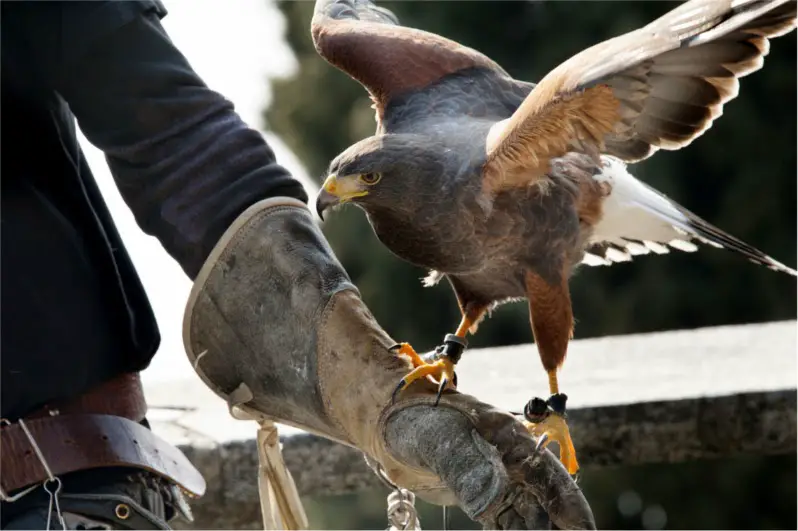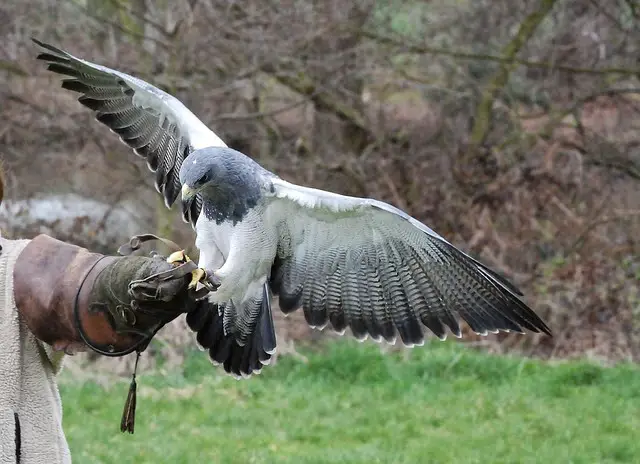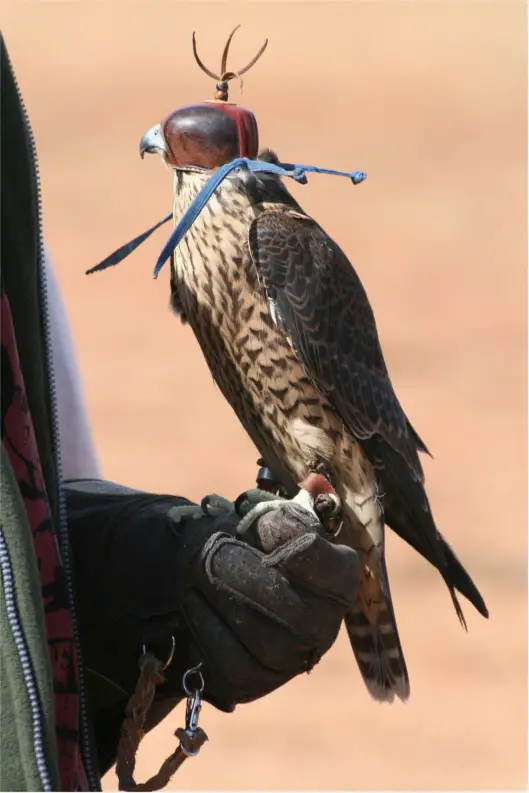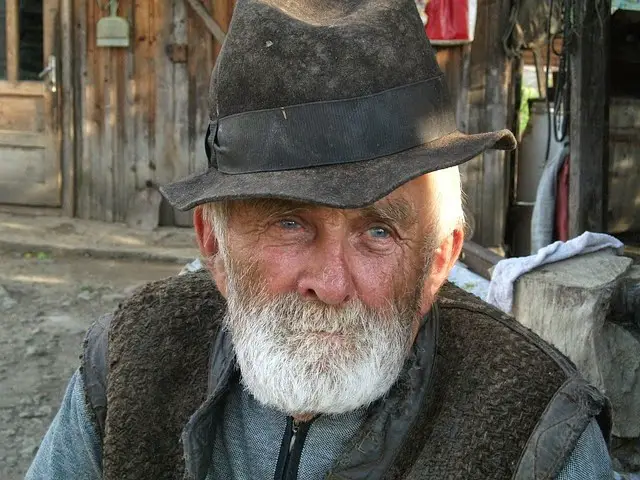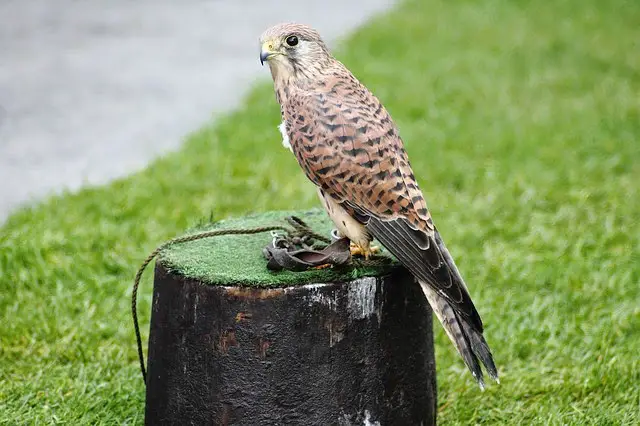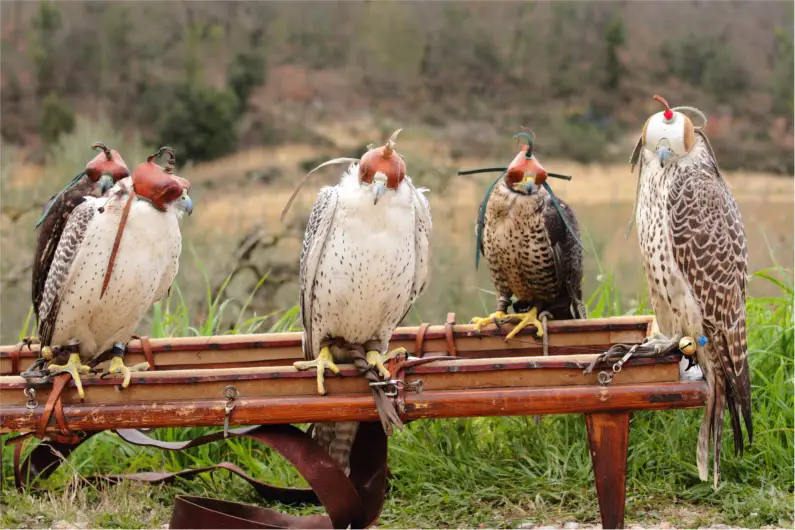In case you didn’t know it, falconry is hunting using a bird of prey such as a hawk or a falcon, for example. Many of the sayings we commonly use today can be traced back to this form of hunting.
Falconry is an ancient practice, dating back to 4000 to 6000 B.C. It uses a bird of prey to hunt wild game, and many of the words and phrases used in the practice are still in use today. Here are some of them that you might have used recently and never knew they came from hunting with a bird.
Fed Up
We’ve all been fed up with someone or something at one point in our lives, but this term had its origins with a hawk who had eaten its fill of food. The hawk was “fed up” and unwilling to fly or hunt anymore for the falconer. We are often “fed up” when something bothers us, we don’t want to do something anymore, or we’re just not interested, e.g., “I’m fed up with my job.”
Under Your Thumb
A falconer had to maintain tight control of their bird, and this happened when they would hold the leash of the bird tightly under one thumb while the bird was perched on their hand. Today it means having control over someone in some way, and usually not a good way, e.g., “I have him right under my thumb.”
Wrapped Around Your Little Finger
A falconer may have had the leash of the bird under their thumb, but to provide a little extra security, they would wrap the remaining strands around their little finger. This way, if the bird somehow broke free, they would still be tethered to the falconer and would have been able to be brought under control.
Today it’s used to mean that someone has complete control over someone else and can get them to do their bidding in some way, e.g., “I have my Dad wrapped around my little finger.” And no, it didn’t derive from the Police song Wrapped Around Your Finger, but now we know where it came from.
Hoodwinked
A falcon or hawk was kept calm by using a small hood that covered his eyes before a hunt or during transport. It was almost as if the hawk was getting tricked into calming themselves. The modern use is just that — getting tricked or fooled into doing something or being scammed in some way, e.g., “I just got hoodwinked.”
Haggard
A haggard is a falcon that is caught in the wild as an adult. Since this type of bird was more difficult to train than one caught while young or taken directly from the nest, haggard came to mean wild or hard to tame. In modern terms, haggard morphed in meaning to describe someone who looks worn out and rough, e.g., “That guy on the corner looks haggard.”
Waiting With Bated Breath
“With bated breath,” was first used in Shakespeare’s Merchant of Venice, but its origins are from falconry. When falcons want to “bate from the block,” or fly away, they try to take off but are held near their perch on their leash. They get short of breath doing so and have to wait for the falconer to release them, hence the term “bated breath.”
Today it’s used to mean listening while holding your breath, waiting for something to happen, e.g., “He awaited her response with bated breath.” Sweet, isn’t it?
End Of My Tether
This saying goes along with “bated breath” actually. It usually occurred from the actions of a young, untrained falcon who had bated from their perch and was being secured by the tether. Not knowing what they were supposed to be doing, the young falcon might struggle against the tether.
Of course, today, it means that your frustration level has peaked, and you can’t take it anymore. It’s possible that “at the end of my rope” or “at the end of my leash” also derived from this saying since tether and these words mean the same thing, e.g., “My kids have me at the end of my tether (rope, leash)”
A Boozer
The term for when a bird of prey drinks is called bowsing. A bird that drinks a lot is called a “boozer.” Of course, the modern take on this term is someone who drinks a substantial amount of alcoholic drinks, e.g., “That guy is quite a boozer.”
Rouse
This verb was used to describe when a falcon would erect all the feathers of their bodies and then shake them. It was part of the bird’s grooming process. Today, this word means to awaken from sleep or repose, or to stir up, e.g., “She tried to rouse him from his nap.”
Codger and Caddy
Falcons are carried on a portable square perch called a cadge. The birds were carried on the cadge since multiple birds were used for the hunt. Think of it like a bench where the birds waited to get in the game. The word “Codger” derived from the word “cadger,” or the people that carried the cadge. Cadgers were usually older falconers who carried the birds on the cadge.
Today it means an older person, usually someone that is eccentric or feisty, e.g., “His uncle is a feisty codger.” To take this term further, the word “caddy” may also have derived from this term. Since the cadger gave specific falcons to the falconer based on what was needed, a caddy gives golf clubs to the golfer in a similar manner.

